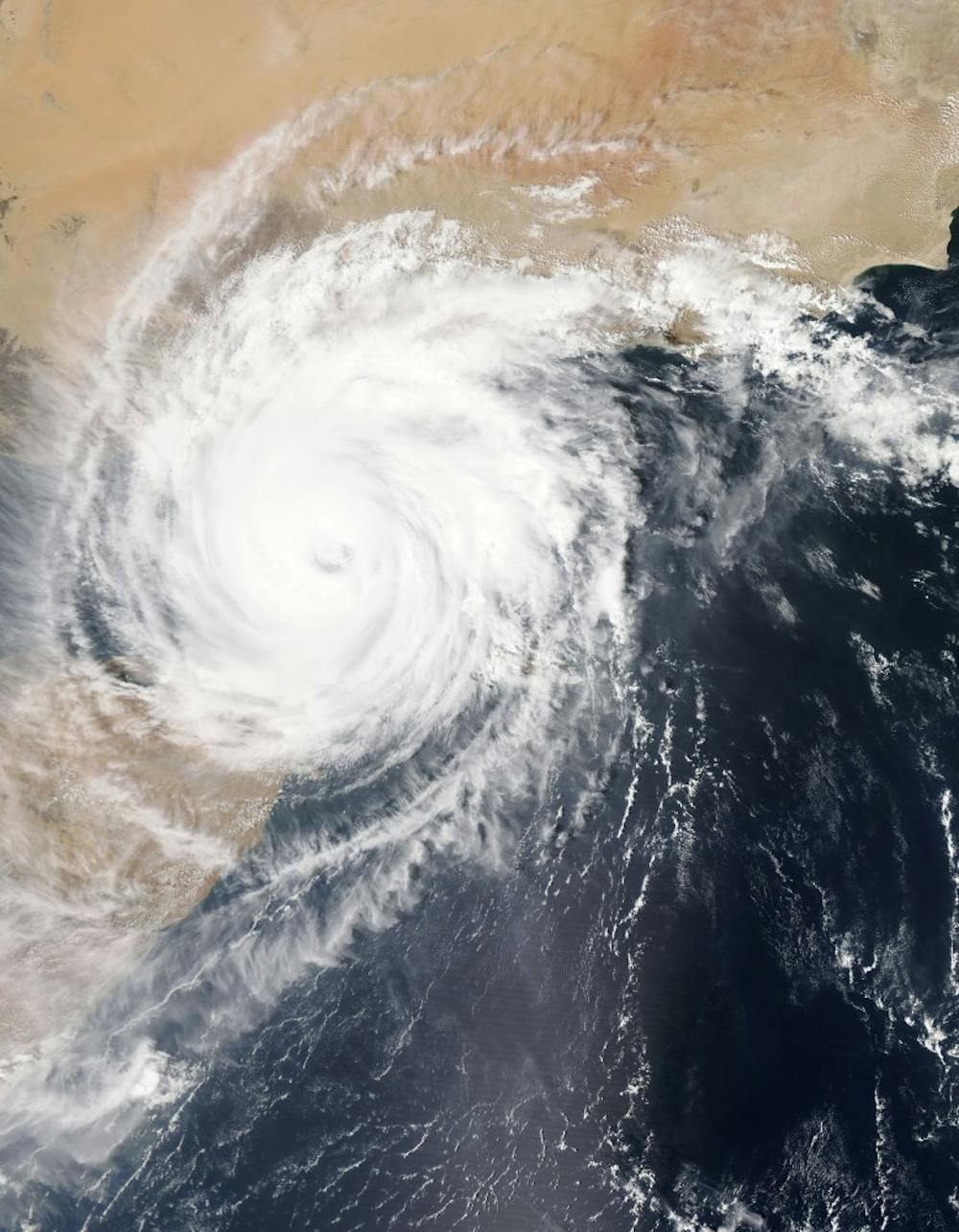With hurricane season active until December, there are a few things to keep in mind for how tropical systems can affect Auburn.
John De Block, the Warning Coordination Meteorologist at the National Weather Service in Birmingham, said the Atlantic hurricane season runs from June 1 to Dec. 1, with the peak statistically being Sept. 12.
De Block said it’s rare for hurricane conditions to come as far inland as Auburn, but tornadoes and tropical storms are a possibility.
“A possible condition is tornadoes forming from the feeder bands of a hurricane,” he said. “Tornados associated with tropical systems tend to be weaker and not long-lasting, but they can be harder to detect on radar.”
Depending on where the tropical system moves within the state, the chances of a tornado can either decrease or increase, De Block said.
“If it moves up to the west of the state, there’s definitely a chance for tornados,” he said. “Whereas if it is to the east of Auburn, your chances go down.”
Tropical storm conditions include winds between 39 and 73 mph and heavy rainfall, he said. De Block said heavy rainfall is a concern to consider with tropical storms.
“Between the storm surge and inland flooding, 74% of all fatalities are related to water for tropical systems,” he said.
The worst-case scenario for Auburn during hurricane season would be for a strong tropical storm to come up I-65 and to be on the west of Auburn since these conditions would be a favorable spot for the strongest winds, tornado possibilities and heavy rain, De Block said.
“It’s uncommon for tropical storm conditions to make this far north, but it’s always good to be aware just in case,” he said.
Emma Pitcock, a junior in marketing, is from Katy, Texas, a suburb of Houston, Texas. She said she remembers for hurricanes they would put wood on their windows to protect from the strong winds and heavy rain and fill up all their bathtubs in case the water stopped running.
During Hurricane Harvey, her friends had to evacuate because they were predicted to get 6 feet of water. Some of her friends’ dads bought boats to help rescue people in the flooded streets, she said.
When she moved to Auburn, she realized even though the weather may feel similar, with it still being the south, that doesn’t mean the severe weather would be the same too, Pitcock said.
“I feel prepared for what I experience from my hometown, but not necessarily for what I’m experiencing where I live now,” she said.
To keep updated with the weather and follow the directions from the campus safety officials,The National Weather Service in Birmingham works closely with campus safety to give weather updates and information, De Block said.
“The most important thing, especially students, can do is to continue to watch the weather and then rely on the campus safety to issue timely alerts,” he said.
Do you like this story? The Plainsman doesn't accept money from tuition or student fees, and we don't charge a subscription fee. But you can donate to support The Plainsman.

Abigail Murphy, senior in journalism with minors in history and women and gender studies, is the operations managing editor at The Auburn Plainsman.





